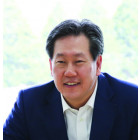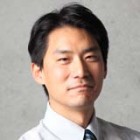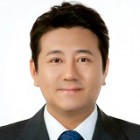Video
Events
Recent Events
Exploring ROK-EU Security Cooperation
- Expert
- Hahm Chaibong
- Hit
- 865
- Date
- 12-06-06 15:00
Asan Roundtable<?xml:namespace prefix = o />
“Exploring ROK-EU Security Cooperation”
Date/Time: Thursday, June 7, 2012/
13:30 – 15:00Place: Conference Room (2F), The Asan Institute for Policy Studies
A Roundtable was held with the European Union (EU) delegation to the Republic of Korea (ROK) under the title: “Exploring ROK-EU Security Cooperation.” The bilateral track-two dialogue came amid the visit of Dr. Gerhard Sabathil, the European External Action Service’s newly appointed Director for Asia and the Pacific, during his visit to countries in Northeast Asia.
Dr. Sabathil stipulated that the EU does not see itself as a leading power in East Asia, but as an organization that has mounting interests in promoting democracy, human rights, non-proliferation, and free market economic values. Throughout the discussion, the EU and South Korea were characterized as ‘middle powers’ that can potentially play intermediary roles in mitigating security dilemmas within their respective regions.
The EU delegation opened the discussion by addressing the disarray in attempts at dealing with North Korea, particularly in the aftermath of Kim Jong-il’s death. The recently attempted North Korean launch and the increased construction of North Korean nuclear facilities have led to the belief that efforts invested in the Six-Party Talks have been in vain. China’s reluctance to openly censure the North Korean provocations of 2010 have further let down hopes that heightened economic interaction with China would have an overflow effect on regional security cooperation.
Similarly to South Korea, the EU recognizes its strategic relationship with China as an opportunity to work with China on issues pertaining to North Korean nuclear procurement, North Korean ties to Syrian and Iranian nuclear development programs, North Korean human rights violations, and territorial disputes in the South China Sea.
Karl Friedhoff presented the Asan Institute’s South Korean Public Opinion Survey in which it assessed Korean public perception toward the United States, Japan, China, and North Korea. Both sides exchanged their views on different threat perceptions toward their regional countries, accentuating the distinct trajectories of historical reconciliation in both regions. It was discussed that the European effort to deal with its tortured past are often held up as a model for East Asia.
In search of common ground for security cooperation, the EU and Korean delegations agreed upon investing their resources in both traditional and non-traditional security issues, through continued dialogue and information sharing on both official and track-two levels.
The list of participants for both Korean and U.S. delegations is as follows:
The Asan Institute for Policy Studies
1. HAHM Chaibong
President, The Asan Institute for Policy Studies
2. BONG Youngshik
Senior Research Fellow, Foreign Policy Studies Program,
The Asan Institute for Policy Studies
3. Jonathan CHOW
Research Fellow, Foreign Policy Studies Program,
The Asan Institute for Policy Studies
4. LIU Qun
Visiting Research Fellow, Foreign Policy Studies Program,
The Asan Institute for Policy Studies
5. KIM Hankwon
Visiting Professor, Institute of Foreign Affairs and National Security,
Korea National Diplomatic Academy
6. Karl FRIEDHOFF
Program Officer, Public Opinion Studies Program,
The Asan Institute for Policy Studies
7. KIM Ju Yeon
Program Officer, Foreign Policy Studies Program,
The Asan Institute for Policy Studies
Delegation of the European Union to the Republic of Korea
1. Gerhard SABATHIL
Director for Asia and the Pacific, European External Action Service
2. H.E. Tomasz KOZLOWSKI
Ambassador and Head of the Delegation of the European Union to the Republic of Korea
3. Uwe WISSENBACH
First Counselor and Deputy Head of Mission,
Delegation of the European Union to the Republic of Korea
4. Vincent-Guillaume POUPEAU
First Secretary,
Delegation of the European Union to the Republic of Korea
5. John SAGAR
Political Affairs Officer,
Delegation of the European Union to the Republic of Korea

Hahm Chaibong
President
Dr. HAHM Chaibong is the president of the Asan Institute for Policy Studies. Previously, he was a senior political scientist at the RAND Corporation in Santa Monica, California, professor in the School of International Relations and the Department of Political Science as well as the director of the Korean Studies Institute at the University of Southern California, Director (D-1) of the Division of Social Sciences Research & Policy at UNESCO in Paris, and a professor in the Department of Political Science at Yonsei University. Dr. Hahm is the author of numerous books and articles, including “China’s Future is South Korea’s Present,” Foreign Affairs, (Sep/Oct 2018), Hanguk Saram Mandeulgi (Becoming Korean), Vols. I, II, (Asan Academy, 2017), “Keeping Northeast Asia ‘Abnormal’: Origins of the Liberal International Order in Northeast Asia and the New Cold War,” Asan Forum (Sep., 2017), “South Korea’s Miraculous Democracy,” Journal of Democracy (Jul., 2008), “The Two South Koreas: A House Divided,” The Washington Quarterly (Jun., 2005), and Confucianism for the Modern World (co-edited with Daniel A. Bell, Cambridge University Press, 2003).

Bong Youngshik
Visiting Research Fellow
Dr. BONG Youngshik is a Visiting Research Fellow at the Asan Institute for Policy Studies. Previously, Dr. Bong was an assistant professor in the School of International Service at American University in Washington, D.C. He was also a Freeman Post-doctoral Fellow at Wellesley College and an assistant professor of Korean Studies at Williams College. His research interests include the interplay between nationalism and security issues such as historical and territorial issues in East Asia, anti-Americanism, and the ROK-US Alliance. He is the author of “Past Is Still Present: The San Francisco System and a Multilateral Security Regime in East Asia,” Korea Observer (2010) and co-editor of Japan in Crisis: What It Will Take for Japan to Rise Again? (with T.J. Pempel, The Asan Institute for Policy Studies, 2012). Dr. Bong received his B.A. in political science from Yonsei University and his M.A. and Ph.D. in political science from the University of Pennsylvania.

Kim Hankwon
Director and Research Fellow
Dr. KIM Hankwon is a research fellow in the China Policy Program and the director of the Center for Regional Studies at the Asan Institute for Policy Studies. Previously, Dr. Kim was a visiting professor in the Center for Chinese Studies at the Korean National Diplomatic Academy, a research fellow at the Institute of International Strategy and Development at Tsinghua University, and a research scholar at the School of International Studies at Peking University. Dr. Kim’s research focuses on Chinese foreign policy and nationalism as well as Sino-North Korean economic relations. His recent publications include “The Multilateral Economic Cooperation for Tumen River Area and China’s Leadership,” The Korean Journal of International Relations (2010) and “China’s Strategic Response to the Kim Jong-un Regime,” IFANS Focus (2012). Dr. Kim received a B.A. and M.P.A. (Master of Public Affairs) from the University of Connecticut at Storrs, and his Ph.D. in international relations from American University. Dr. Kim also completed a post-doctoral program at Tsinghua University.



